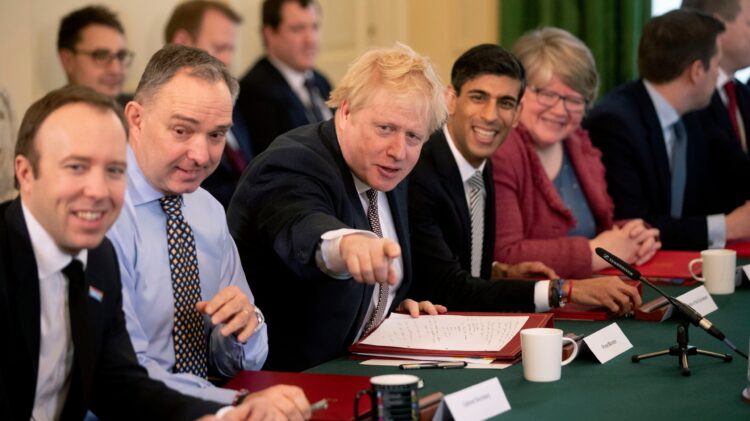By Ben Kerrigan-
The UK government did not adequately consider health inequalities like structural racism in its emergency planning before the pandemic, leading scientists have found.
Two leading epidemiologists, Michael Marmot and Clare Bambra, found that almost no emergency planning reports referred to health inequalities, with “certainly no mention of any of the causes of the health inequalities” such as structural racism.
Speaking on Friday, the prominent scientists, who are professors of epidemiology and public health at University told that reviewed material generated by several government emergency exercises – including Exercise Cygnus from 2016, which intended to simulate a flu outbreak – to see whether these considered the impact of health inequalities, had no mentions of deprivation or other community characteristics, for example, “ethnic composition” was mentioned, they said.
“It is not discussed at all,” said Bambra, said.
The inquiry had asked the two scientists to address the following question: “Did the specialist structures concerned with risk management and civil emergency planning allow for the proper consideration of structural racism and its impact?”
They concluded that the government’s consideration of this was absent from the multiple documents it reviewed.
“With some exceptions,” the scientists’ report found, the UK’s emergency planning “did not properly consider societal economic and health impact, in light of pre-existing inequalities”.
The inquiry which reluctantly included structural racism as part of its inquiry following pressure from from many aggrieved parties associated with bereaved families , is set to examine how far Black and Brown people were disproportionately impacted by coronavirus, including the fact they were more likely to be working in frontline jobs and living in cramped conditions, with higher levels of deprivation and worse health.
The Eye Of Media.Com which will be keeping a keen interest the inquiry, has already been in communication with the Covid inquiry team in relation tot he importance of a fully comprehensive inquiry that addresses every relevant facet of the inquiry.
The inclusion is a tasking one, mainly because the government is believed to have been conscious of the potential effect of any structural racism on the parties.
Special observers and analysts of the pandemic have concluded that Britain was not ready for the pandemic, and it was only due to intense external pressure that Boris Johnson’s government caved in and approved a lockdown during the heights of the pandemic.
The former prime minister had preferred to opt for herd immunity, and lead lawyer for the inquiry Keith has already noted that the government did not adequately consider the effects of a lockdown when it authorised one.
One nurse on The Eye Of Media’s thinktank said on the condition of anonymity: ”Johnson was in a no win situation, he was damned if he endorsed a lockdown, as he did, and damned if he did not” .
”The government took the lockdown very spontaneously, and would have had no time to consider structural racism earlier in the pandemic, but could have potentially considered it at a later stage.
Already, some bereaved families are wanting an explanation why more black and ethnic minorities were reportedly dying of the virus, a point warming up for a potential clash after the very claim sparked opposition from some ethnic minority professionals in The Eye Of Media’s thinktank and was discussed and debated with a predominantly white professional team.
The consensus so far is that the claim is controversial and likely to lead to a clash with any groups that mention the claim as a fact during the course of this inquiry.
Belly Mujinga, a 47-year-old Congolese-born railway worker, died from a combination of coronavirus and a respiratory disease after she was spat on during a shift, despite requesting to be taken off frontline duties due to her clinical vulnerability.
Bambra told the inquiry that even with better data collection on racial disparities, it would be unlikely the government would have considered this in its emergency planning.
“I think if we had had [better data] with the caveats that I’ve outlined, then we certainly would have had more knowledge of who was most likely to be impacted,” said Bambra. “However, because of looking at the planning documents, I’m not sure that would have been taken into account in planning even if we had to have such a robust data capture system.”
Bamba and Marmot are amongst a selection of expert and civil servant witnesses speaking during the first module of the Covid-19 inquiry, which is seeking to explore the UK’s preparedness for the pandemic
Speaking to the Covid-19 inquiry in London, Michael Marmot and Clare Bambra found that almost no emergency planning reports referred to health inequalities, with “certainly no mention of any of the causes of the health inequalities” such as structural racism.
The two leading epidemiologists speaking on Friday reviewed material generated by several government emergency exercises – including Exercise Cygnus from 2016, which intended to simulate a flu outbreak – to see whether these considered the impact of health inequalities.
It found no mentions of deprivation or other community characteristics, for example, “ethnic composition”.

